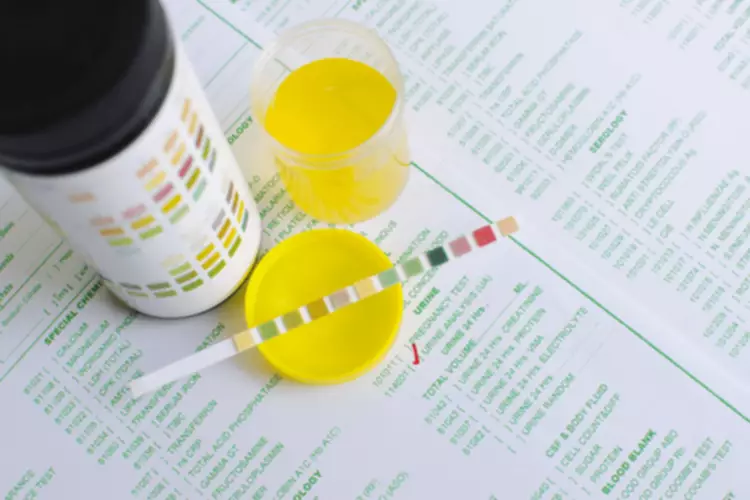25 Nov Stages of Alcoholism Early to End-Stage Alcoholism Symptoms

Only trained and licensed medical professionals can provide such services. If you or anyone you know is undergoing a severe health crisis, call a doctor or 911 immediately. Individuals are on the brink of alcohol use disorder, with drinking firmly rooted in their daily routines. Despite awareness of the adverse effects, there is a struggle to abstain from alcohol. No matter what stage of addiction you or a loved one may be in, addiction treatment is available to help you overcome alcoholism. Middle-stage alcoholics might deny their drinking problem or try to hide their alcohol use from others.

Impact on your health
Any stage of the Jellinek Curve is considered dangerous because the person is not consuming alcohol in moderation, which is the only safe way to drink. Moderate drinking means two drinks or fewer in a day for men or one drink or fewer in a day for women, according to the Centers for Disease Control and Prevention (CDC). Those struggling with AUD usually had their first exposure to alcohol during 5 stages of alcoholism their teenage years, driven by curiosity or peer influence. One of the stages of alcoholism is experimentation for the first time. Initially, it triggers pleasurable sensations and dampens negative emotions, creating a consumption cycle driven by the desire for these effects. However, continued use can lead to alterations in brain structure and function, amplifying vulnerability to addiction.
You deserve excellent care and a rewarding life in recovery.
- Since many people with alcoholism endure psychological problems, individual or group therapy may help in overcoming addiction.
- If you want to mitigate these concerns, it’s highly recommended that you seek treatment immediately.
- If you’re in the “at-risk” population, it doesn’t take much to become dependent on alcohol or other drugs.
- Heavy alcohol consumption has been linked to more than 60 different diseases.
- The effects of alcoholism, however, are not exclusive to the addict.
Fluid buildup in end-stage liver disease is a particularly ominous sign. Fifty percent of patients with ascites typically die within two years if they don’t have a liver transplant. When alcohol is not present, individuals may experience uncomfortable symptoms such as restlessness, tremors, headache, nausea, vomiting and insomnia. More resources for a variety of healthcare professionals can be found in the Additional Links for Patient Care.

International Patients
When combined with other evidence-based therapies, such as cognitive behavioral therapy (CBT), MAT can help prevent relapse and increase your chance of recovery. Most will offer aftercare once you complete the inpatient portion of your treatment. If willing, a person with an AUD can get stabilized with recovery. From there, you will work on maintenance (learning to live sober) and, finally, transcendence or full recovery.
- The end or late stages of alcoholism are when you have lost total control, and the disease starts to impact you physically, socially, and mentally.
- Treatment options for end-stage alcoholism may include hospice care, palliative care, or hospitalization to manage complications.
- Drinkers leave the experimental stage when their alcohol consumption becomes more frequent.
- Contact us for a free assessment, and allow us to show you how our program can help you lead the life you want, unshackled by addiction and surrounded with love.
- Alcoholic blackouts happen more frequently, and you cannot fall asleep at night without drinking.
- This behavior may be a sign of experimentation with alcohol gone too far, especially in the case of adolescents or young adults.

Here, the impact of alcohol on daily life becomes more apparent, with friends and family noticing changes in behavior and lifestyle. Individuals in this stage meet at least four to five criteria from the DSM-5 list, indicating a progression toward severe alcohol use disorder. There is a range of treatment options that you can seek once you have admitted that you are suffering from alcohol use disorder.
- The earlier they seek treatment, the better their chance of successful recovery.
- Jellinek viewed alcoholism as a chronic relapsing condition that needed to be treated by health professionals and developed a theory on the progression of alcoholism through various stages.
- Early-stage alcoholism is easier to notice than the pre-alcoholism stage.
- This offers professionals and people affected by drinking problems a framework to understand the journey of an alcoholic.
Our team does their best for our readers to help them stay informed about vital healthcare decisions. Addiction professionals on standby 24/7 to help you with any questions you or a loved one may have. You’ll soon start receiving the latest Mayo Clinic health information you requested in your inbox. Our free email newsletter offers guidance from top addiction specialists, inspiring sobriety stories, and practical https://ecosoberhouse.com/ recovery tips to help you or a loved one keep coming back and staying sober. While in this phase, an individual may still be able to function at work and home, but friends or family may begin to notice changes in their behavior. While the recovery period may be challenging, it’s also filled with milestones that can transform your life into one that’s better than you could have previously imagined.
Get Help for Alcohol Abuse
It affects more men than women and is fatal 10 to 20 percent of the time. Despite efforts to hide their addiction, their drinking problem is quite obvious to others. Work performance usually suffers at this stage, and impairment in the workplace is common. Middle-stage alcoholics may become irritable or angry if confronted about their drinking. Mood swings, depression and feelings of guilt and shame are common.

Moderate drinking is the only safe way to consume alcohol, but drinking in general isn’t safe for everyone. While end-stage alcoholism is a dire situation, it’s not a hopeless one. Late-stage alcoholics can get better if they seek treatment, and some of their health problems can even be reversed if caught early enough. The first stage is mainly experimental and often begins at a younger age.

